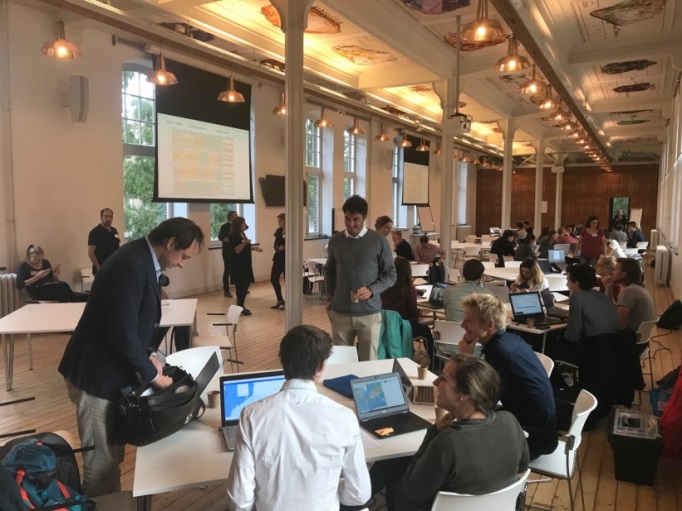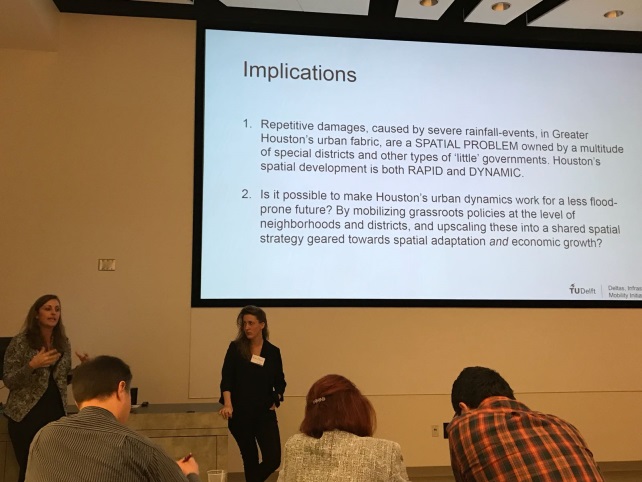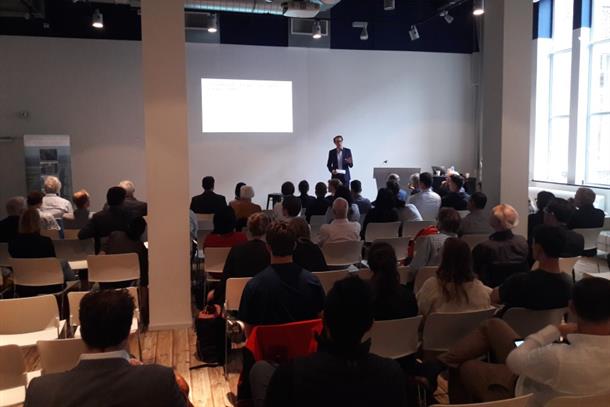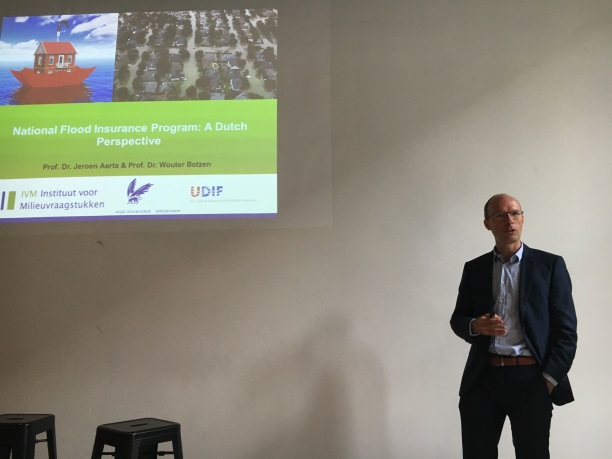Update DIMI after Hurricane Harvey
Since Hurricane Harvey ravaged the Texas coast in August 2017, DIMI has followed up on its previous involvement in Houston’s quest to reduce flood damages. Houston is known as ‘America’s Flood Capital’ and has seen at least thirty damaging floods since the 1970s, with three 500-year flood events in a row since 2015. DIMI has funded research and education-efforts between TU Delft and several partners in Texas since 2012. The ‘Texas-case’ is considered as one of DIMI’s flagship projects, where multidisciplinary collaboration within TU Delft proactively engages in creating innovative and sustainable solutions for complex societal problems in urban deltas. Since Harvey, interest at TU Delft has expanded beyond the scope of flood defences and storm surge mitigation, to include urban flood risk management and compound flooding. DIMI sponsored the Harvey Hackaton and a fact-finding mission by TU Delft’s multidisciplinary specialists, resulting in the Hurricane Harvey report and conference in October 2017.
In 2018, multidisciplinary collaboration in the Texas-case gathered momentum, both within TU Delft and beyond. In February 2018, DIMI’s postdoc Nikki Brand provided an invited lecture on the Moving Forward From Harvey-conference in Houston, Texas. The conference, hosted by the Severe Storm Prediction, Evacuation and Education from Disasters-(SSPEED) centre, was the first cross-sectoral conference after the devastation brought to Texas by hurricane Harvey in August 2017. Lectures were provided about probability-reduction by structural measures, preparedness, land use development issues, and Dutch flood risk management strategies. The DIMI-lecture, Land Use Issues in Greater Houston, focused on the strength of Houston’s rapid urban development as a means to mitigate flood risk.
As a follow up, DIMI hosted a cross-Atlantic seminar about the comparative potential to build flood resilience via the multi-layered safety approach in Texas and the Netherlands on May 22. The seminar was chaired by Ellen van Bueren, TU Delft’s professor of Urban Development Management. Multi-layered Safety is the combination of probability and consequence-reducing measures to mitigate flood risk, and requires collaboration among sectors and academic disciplines. The seminar boasted key speakers from both sides of the Atlantic, including Sam Brody (director of the Center for Texas Beaches and Shores), Phil Bedient (director of Houston’s SSPEED-centre) and Jeroen Aerts (professor of Flood Risk Management, VU University). It attracted a small crowd of academia and practice.
For the remainder of 2018, more multidisciplinary efforts are expected. BOSS (the student association of Management in the Built Environment) will visit Texas, to identify urban development mechanisms that can support Houston’s urban flood resilience. Moreover, an international research consortium that builds on existing contacts, and studies multiple strategies to reduce flood risk in Texas and the Netherlands, is established. This Dutch consortium will match the efforts of US-based research efforts in urban flood resilience.



